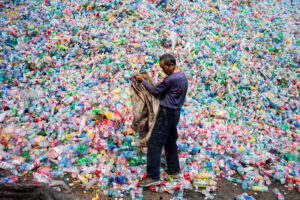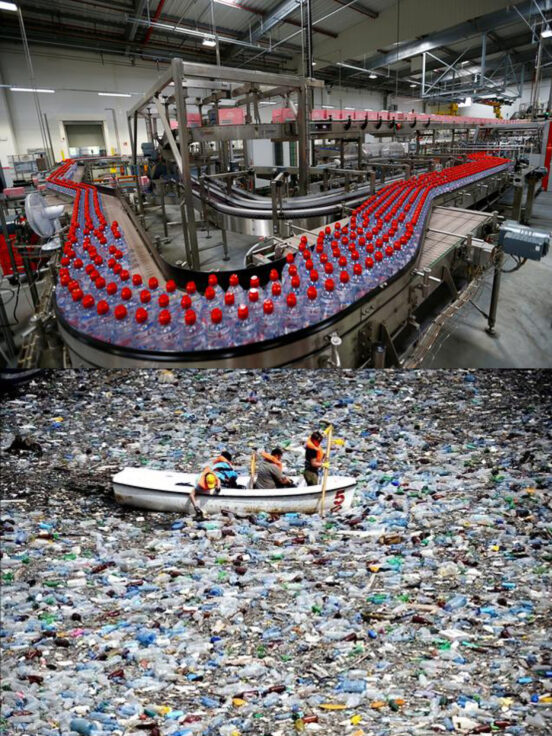Continuing onto this week’s lecture, we are focusing the topic of materialism and the issues coming from within. There is another theory of New Materialism, which can be grouped under ‘feminist materialist writers in environmental humanities’. An example of this would be the work of Stacey Alaimo which explains new understandings of the human body and natural world, questioning materiality. Alaimo’s work explains her interest in the connection between human bodies and materials, enabling us to realise the of the definition of matter. Alaimo underlines the importance of acknowledging the transition of materials around the world and how this contributes to the major issues we are currently experiencing such as pollution.
Nowadays, plastic material makes a catastrophic contribution to ocean pollution. Since this material was created, humans have altered their approach to materials entirely. Plastic, for many years, has been considered a better solution and substituted many other materials such as glass, wood, and paper. In 1907 with the first invention of the fully synthetic plastic, gave way to mass-production and created high demand from society. Plastic came to be as it was easy to create, very mouldable, very lightweight, cheaper, and less rare in comparison to other materials. It was during the ’70s that people started to notice how bad plastic can be for the environment due to all the chemicals are needed to create it. Unfortunately, the proposed solution was to deposit all the plastic waste into the ocean. After many years we realised this was a terrible idea as plastic is not biodegradable.

A Chinese labourer sorts through plastic bottles at a recycling operation in Dong Xiao Kou village, on the outskirt of Beijing. PHOTOGRAPH BY FRED DUFOUR, AFP, GETTY.
Although plastic is not the greatest material, it has been very beneficial for the economy. However, now we have reached a deeper understanding of the material and the connection with the human body. Therefore, the past has provided a learning path that should encourage a more responsible and environmentally friendly approach.







